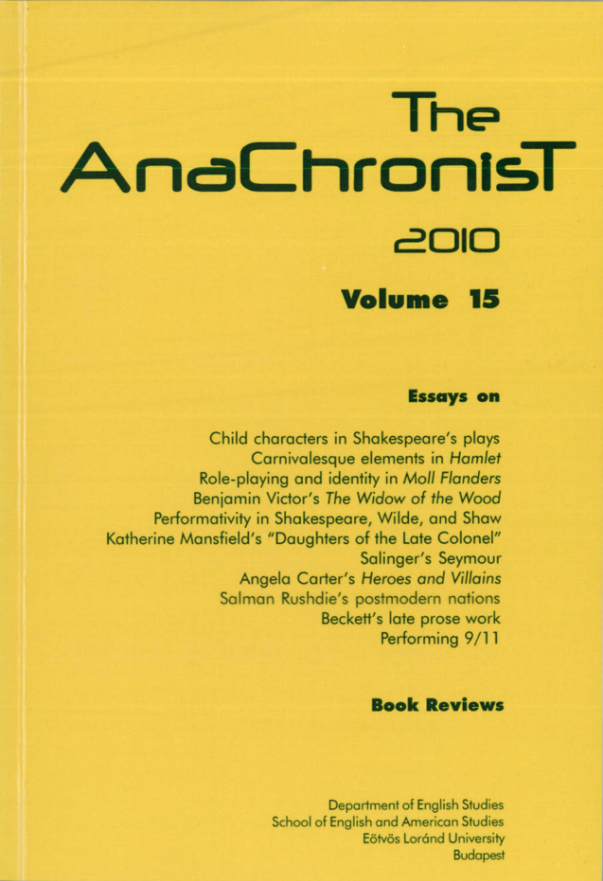Refocusing the Gendered Gaze
Role-Playing, Performance, and Multiple-Identity in Defoe's Moll Flanders
DOI:
https://doi.org/10.53720/JVSF4427Abstract
Daniel Defoe makes use of subject-object patterns within his novel Moll Flanders in order to produce ruptures within eighteenth-century gender ideology and to reconstitute the subject-object relation between masculine and feminine within the novel. Even as Defoe affirms the dominance of gender ideology by positioning his readers as objects of the novel, Defoe uses his character of Moll Flanders to suggest the potential for transforming ideology through the performative act of gender. As Moll struggles to link fragments of her past, she explores the boundaries of gender identity and transgresses their limits in order to achieve movement within eighteenth century society. How Moll negotiates her conceptions and interpretations of her relation to her natural, cultural, and psychological landscapes suggests her success in tracing the presence of an identity that would inform and sustain the self by allowing her to assert a sense of economic individualism, which might release her from any moral obligation to the pervasive and dominant ideologies affecting gender in the eighteenth century.

